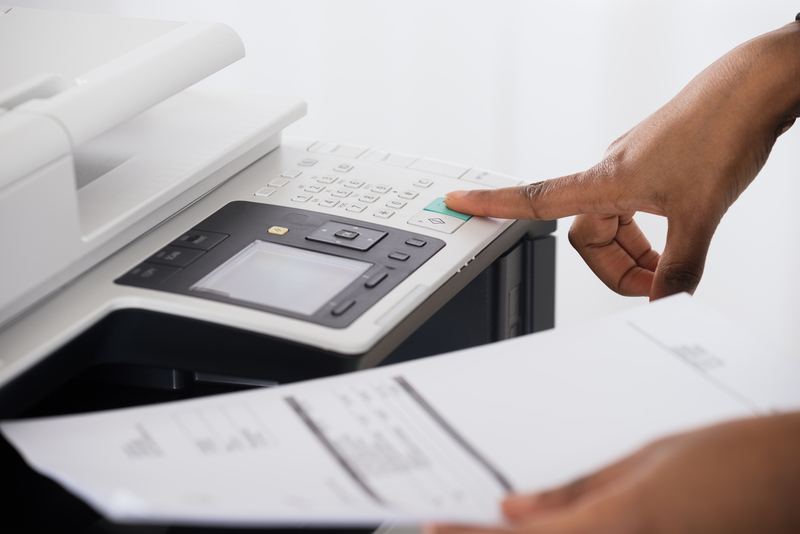Simple Actions You Can Take to Dispose of PPE Waste Responsibly
The use of Personal Protective Equipment (PPE) has become a standard part of daily life for many individuals and businesses worldwide. From face masks and gloves to protective suits and face shields, these items protect us from potential health hazards. However, the environmental impact of irresponsible disposal is a growing concern. This comprehensive guide will discuss simple actions for responsible PPE waste disposal, helping you minimize environmental harm and encourage sustainable practices.

Why Responsible Disposal of PPE Waste Matters
PPE waste, if not managed properly, can lead to serious environmental and public health issues. Disposable masks, gloves, and other items are often made of plastics and synthetic fibers that can take hundreds of years to decompose. Irresponsibly discarded PPE can:
- Clog waterways and pollute oceans
- Harm wildlife that mistake PPE for food
- Spread pathogens if contaminated PPE is handled improperly
- Overwhelm waste management systems
Responsible PPE waste disposal actions are critical to curb these negative impacts. Let's explore the most effective and simple ways you can help make a difference.
Understanding PPE Waste: What Does It Include?
PPE waste encompasses various items used to protect oneself from environmental hazards. Common PPE waste includes:
- Single-use face masks (surgical, N95, etc.)
- Disposable gloves (latex, nitrile, vinyl)
- Gowns and aprons
- Face shields and safety goggles
- Protective shoe covers
Each item requires thoughtful management when its usage period ends. Proper PPE waste disposal helps maintain a safer environment and supports public health goals.
Easy Steps to Dispose of PPE Waste Responsibly
1. Avoid Littering: Always Use a Trash Bin
The simplest yet most impactful action is to ensure that all PPE waste finds its way into a trash bin. Never litter masks, gloves, or other PPE items in public spaces. Besides being unsightly, discarded PPE can transmit disease and enter natural ecosystems.
- Carry a small bag or zip-lock pouch to store used PPE until you find an appropriate disposal location.
- Educate family members and coworkers about the dangers of PPE littering.
2. Segregate PPE Waste from Recyclables and Organics
While some PPE may look similar to everyday items, do not place used PPE in recycling bins unless explicitly indicated. Most single-use PPE is not recyclable through standard municipal recycling programs due to contamination and material composition.
- Designate a specific bin for PPE waste at home and your workplace.
- Label the bin with a clear sign such as PPE Waste Only.
- Avoid mixing masks and gloves with food waste or general recyclables.
3. Secure PPE in Sealed Bags Before Disposal
PPE may carry contaminants, including viruses or hazardous chemicals. To protect waste workers and prevent contamination:
- Place used PPE in a sturdy, leak-proof bag.
- Seal the bag firmly before placing it in the general waste.
- If you have significant amounts of PPE waste (e.g., in healthcare settings), double-bagging is advisable.
This simple practice minimizes exposure risk and makes handling waste safer at every stage.
4. Follow Community Guidelines for PPE Waste Disposal
Local regulations on PPE waste disposal differ from one area to another. Stay informed about the protocols in your locality:
- Check municipal websites or contact waste management authorities for official guidance.
- Some areas provide specific collection points or hazardous waste bins for PPE.
- Use designated drop-off locations for bulk or medical-grade PPE waste if provided.
Following local requirements not only ensures legal compliance but also supports systematic and safe PPE disposal.
5. Do Not Attempt to Recycle Used PPE at Home
Many people are eager to recycle waste, but attempting to recycle PPE at home can do more harm than good. The complex materials and contamination risks mean:
- PPE items can contaminate the recycling stream, leading to higher volumes of landfill waste.
- Recycling facilities may not be equipped to handle medical waste, endangering workers.
Only recycle PPE if your local facility explicitly accepts it following specialized processes.
6. Encourage Use of Reusable PPE Where Appropriate
Although disposable PPE is sometimes necessary, many alternatives can be sanitized and reused. Switching to reusable PPE reduces the overall volume of PPE waste:
- Opt for washable fabric masks instead of single-use masks when suitable for the situation.
- Choose reusable gloves for cleaning rather than disposable ones for non-medical purposes.
- Regularly clean and maintain reusable PPE according to manufacturer instructions.
This approach isn't only eco-friendly but often more cost-effective in the long run.
7. Participate in Specialty PPE Recycling Programs
Some organizations have started dedicated programs for the collection and recycling of specific PPE waste types. For example, brands and waste innovators have set up schemes to process disposable masks and gloves in bulk.
- Research local initiatives or online platforms that offer PPE mail-back recycling services.
- Consider joining workplace or community PPE take-back programs.
- Encourage your employer, school, or organization to partner with specialized recyclers.
Participating in such programs helps advance circular solutions for PPE materials.
Handling PPE Waste at Home versus Workplaces
PPE Disposal at Home
For households, responsible PPE waste disposal actions are straightforward:
- Bag masks and gloves securely and throw them out with general rubbish.
- Educate children and elderly family members about safe handling and disposal.
- If anyone in your home is ill or quarantined, double-bag their PPE and mark the bag before disposal, as recommended by health authorities.
Keep bags out of the reach of pets and young children until collected by your local waste service.
PPE Waste in Workplaces and Health Settings
Workplaces, especially those with higher PPE usage such as hospitals, clinics, and laboratories, need systematic PPE waste management strategies:
- Place labeled PPE disposal bins in all work areas.
- Train staff on correct disposal procedures, including sealing, double-bagging, and personal hygiene after contact.
- Contract waste management companies specializing in medical or hazardous waste, if applicable.
- Monitor compliance regularly and encourage reporting of improper disposal habits.
Effective workplace PPE waste management is essential for worker safety and regulatory compliance.
Environmental Tips: Reducing Your PPE Waste Footprint
Prevention is better than cure. Reducing your reliance on disposable PPE is the best way to tackle waste generation.
Here are some tips:
- Adopt alternatives: Choose reusable PPE whenever suitable. Wash and maintain them as per guidelines.
- Limit overuse: Use PPE only as needed. Avoid wearing multiple layers or pieces unless necessary for your protection.
- Raise Awareness: Share information about responsible PPE waste disposal among your networks. The more people act, the greater the environmental benefit.
A small shift in personal habits can collectively reduce millions of tons of PPE waste annually.
The Dangers of Improper PPE Waste Disposal
Improper disposal of PPE can have far-reaching consequences:
- Environmental Pollution: Plastics and microfibers from PPE persist in the environment, harming wildlife and ecosystems.
- Health Hazards: Used PPE may still harbor pathogens, posing health risks to sanitary workers and the public.
- Blockages: Masks and gloves can block drainage systems, exacerbating issues like urban flooding.
- Waste Management Overload: An influx of PPE waste strains municipal systems, diverting resources from other essential services.
Caring for the environment is a shared responsibility, and responsible PPE waste disposal is a crucial part of the solution.
What to Do If You See PPE Litter in Public
If you notice discarded PPE in your neighborhood or local parks, take action:
- Pick up PPE while wearing gloves (or use a litter picker).
- Bag it securely, dispose of it in a closed trash bin, and remove your gloves safely.
- Sanitize your hands thoroughly afterward to avoid possible infection.
Report significant littering or persistent PPE waste problems to local authorities or environmental groups for further action.

Frequently Asked Questions About PPE Waste Disposal
Is it safe to burn used PPE at home?
No. Burning PPE can release toxic fumes and is harmful to your health and the environment. Always use proper disposal methods outlined by local authorities.
Can PPE like masks be composted?
Generally, no. Most disposable PPE contains synthetic fibers not suitable for composting and can contaminate organic waste streams.
Are there biodegradable PPE options?
Yes, some companies are developing biodegradable or compostable PPE. Ensure you follow specific disposal instructions as these items may require distinct handling or facilities to break down safely.
Can reusable masks be washed with other laundry?
Yes, in most cases reusable masks can be washed with your regular laundry, preferably on a hot cycle with detergent. Follow manufacturer recommendations for the best results.
Conclusion: Every Small Action Matters
Simple actions to responsibly dispose of PPE waste are vital for personal, public, and environmental health. By following the practices outlined above, you are contributing toward a cleaner, safer planet. Encourage your family, friends, and community to do the same. Together, we can make a big difference by making small changes in our daily habits.
- Dispose of PPE in sealed bags and in the right bins
- Segregate PPE waste from recyclables
- Opt for reusable PPE where practical
- Participate in PPE recycling programs
- Spread awareness about proper PPE waste disposal
If every individual and organization takes responsibility, we can curb the tide of PPE pollution and protect our world for generations to come.
